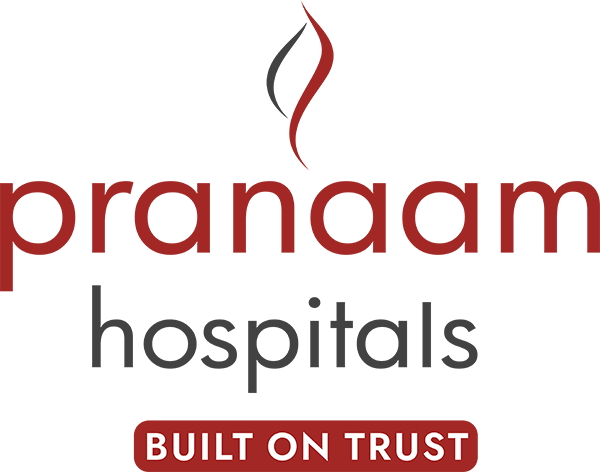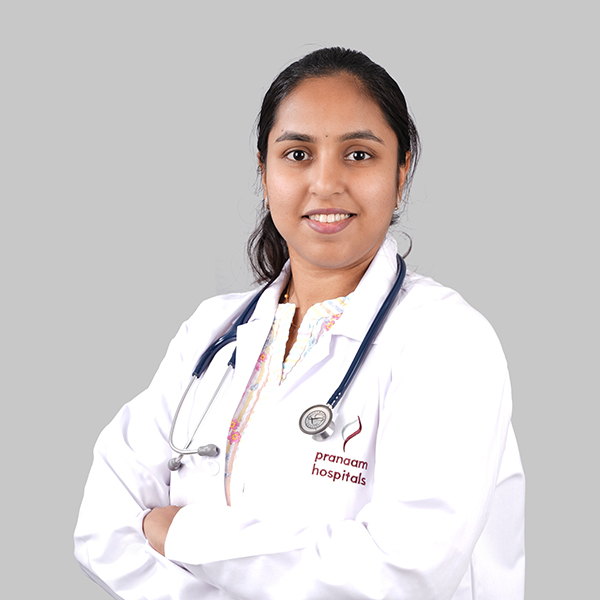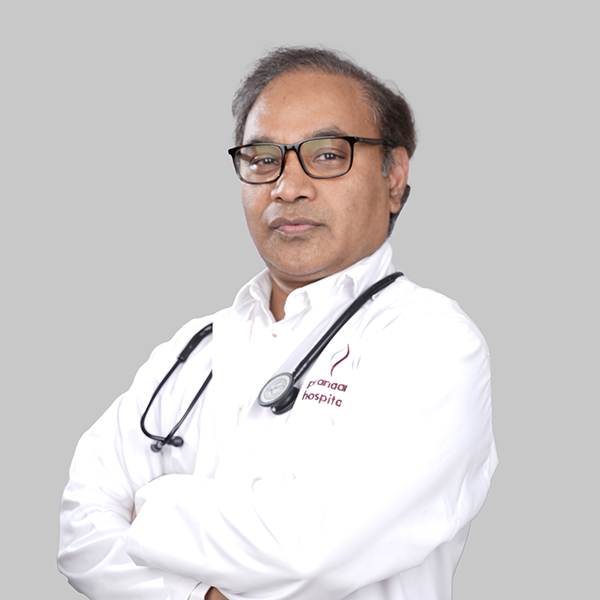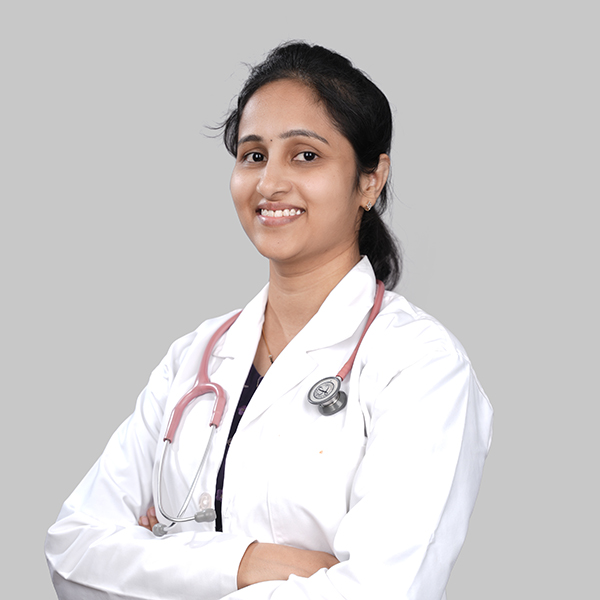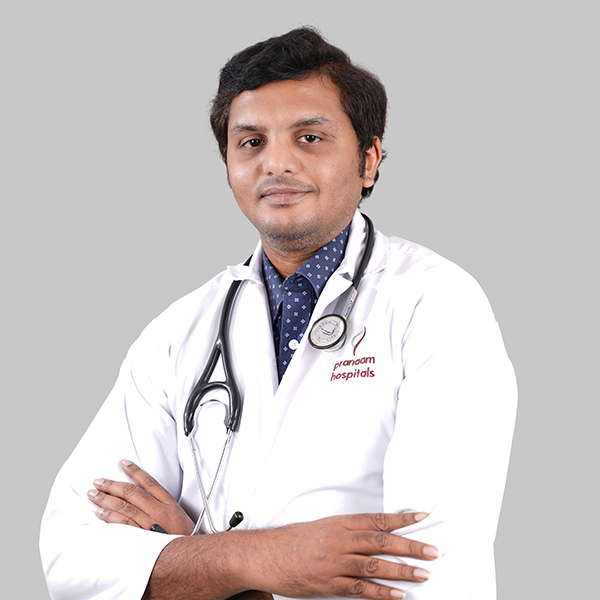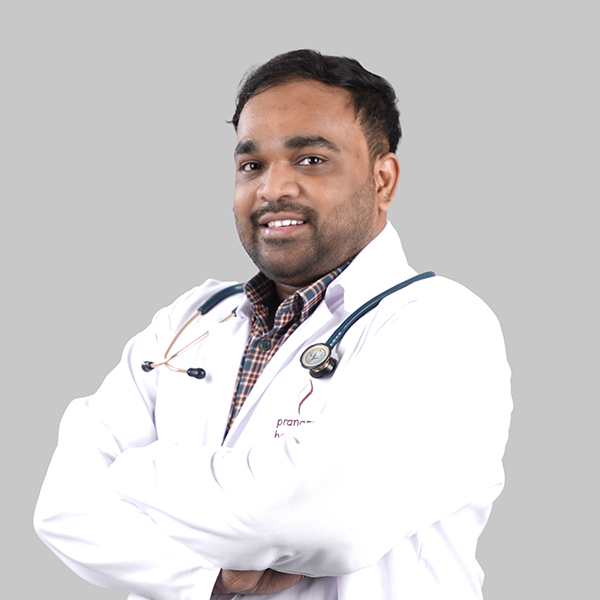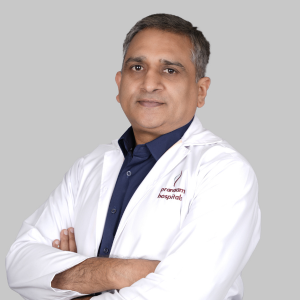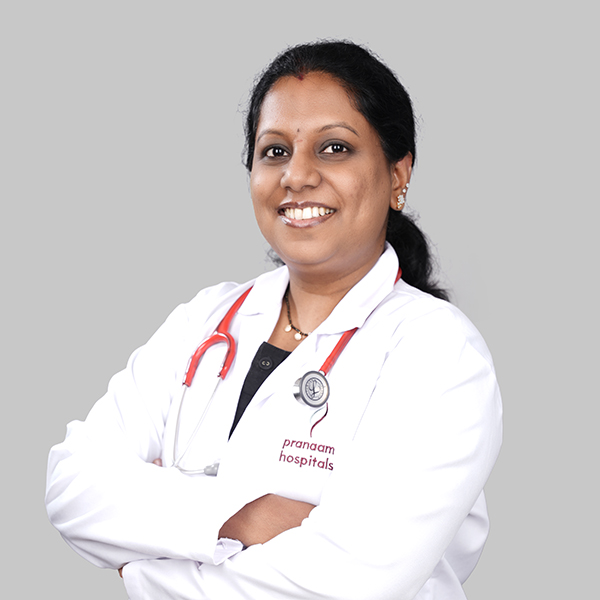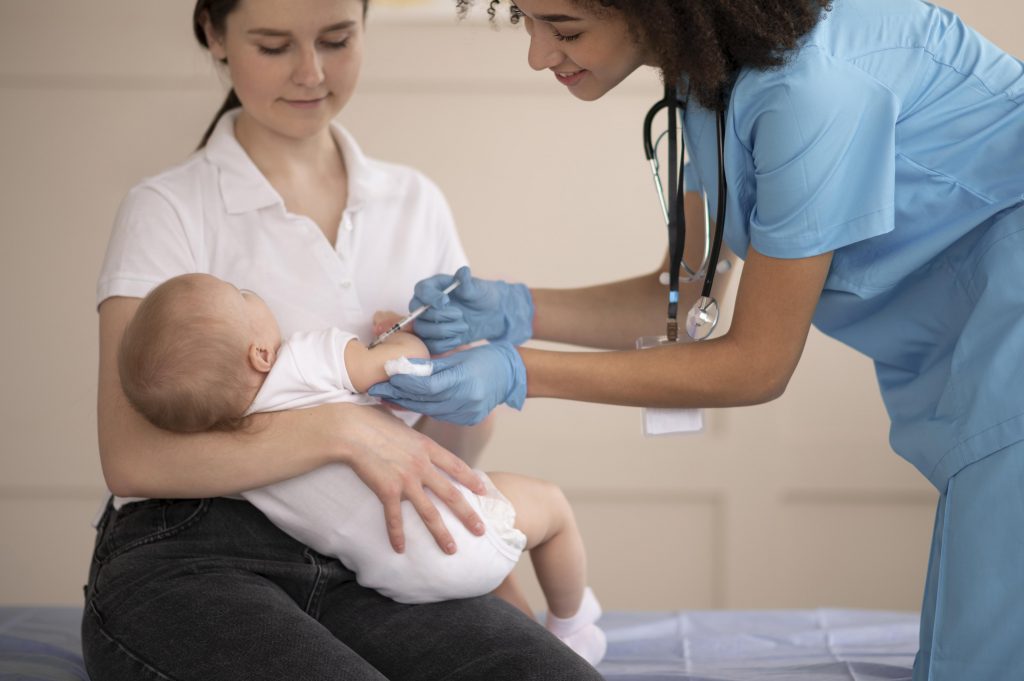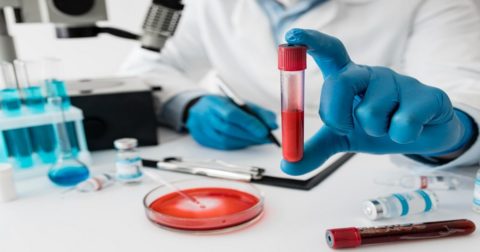Pranaam Hospital Pediatrics
Best Pediatrics Hospital in Hyderabad
Happy child,
happier you.
From small niggles to developmental concerns to surgeries, your child's in the safest of hands.
At Pranaam Hospitals, recognized as the Best Paediatric Hospital in Hyderabad, our specialties extend to treating a wide range of children’s health concerns including genetic disorders, developmental problems, orthopaedics, cancer, and various infectious diseases. Unlike adults, children often struggle to express their symptoms clearly — and that’s where our highly skilled paediatric experts step in, offering accurate diagnosis and compassionate care that sets us apart from other institutions.
Our state-of-the-art facilities include advanced Paediatric ICUs and Neonatal ICUs, ensuring the best possible outcomes for critically ill children and newborns with health complications.
Our specialties
From the age of 2 to 5, our highly experienced paediatricians will provide medical services that include:
- Vaccinations.
- Ensuring your child exhibits normal growth, behaviour and skills as per their age.
- Diagnosing and treating your child’s infections, injuries, illnesses, or other health problems.
- Performing physical exams to diagnose a health condition.
- Providing information about your child’s nutrition & fitness needs, health and safety.
- Informing about their growth and development.
- Referring to specialists in case of expert care advice and treatment.
Equipped with an advanced facility, our highly skilled Neonatologists with the support of senior experienced staff, offer comprehensive care, especially in the treatments of premature babies or newborns with serious illnesses. They advise on proper nutrition and other necessary treatment plans in consultation with obstetricians, paediatricians and their family doctors.
Our other specialities at Pranaam include Paediatric Orthopaedics, Neonatal & Paediatric Critical Care, Paediatric Neurology, Paediatric Infectious diseases, Paediatric Oncology, Paediatric surgery, Gastroenterology, Hepatology, Haematology, Endocrinology, Genetics, Paediatric Rheumatology, Pulmonology and Paediatric neurosurgery.
At Pranaam, our expertise also extends to other medical conditions in children such as Tonsillitis, enlarged adenoids,
allergies, cold, cough, poor immunity, bedwetting, eating disorders, underweight, overweight, height gain, prematurity,
Intrauterine Growth Retardation, Congenital Malformations (birth defects), Sepsis, birth asphyxia and many more.
At Pranaam hospitals we pride ourselves in having one of the highly established Departments of Paediatric Surgery that deals with the surgery of foetuses, infants, children, adolescents, and young adults.
Common paediatric diseases that may require paediatric surgery include:
Congenital malformations:
- Lymphangioma
- Cleft lip and palate
- Esophageal atresia and tracheoesophageal fistula
- Hypertrophic pyloric stenosis
- Intestinal atresia
- Necrotizing enterocolitis
- Meconium plugs
- Hirschsprung’s disease
- Imperforate anus
- Undescended testes
Abdominal wall defects:
- Omphalocele
- Gastroschisis
Hernias chest wall deformities:
- Pectus excavatum
Childhood tumours:
- Neuroblastoma
- Wilms’ tumour
- Rhabdomyosarcoma
- Atypical teratoid rhabdoid tumour (ATRT)
- Appendicitis
- Liver tumours
- Teratomas

There's nothing blissful than hearing a child's laugh or watch them grow right before our eyes. It's another story when their health takes a different turn and our hearts ache while they lay incapacitated with a chronic disease or health condition.
Why Pranaam Hospitals?

Award Winning Care
We’re honoured to be accredited by the NABH and NABL for our team’s exemplary skills and quality care. The people have spoken as well - we’re recognised by patients and professionals alike in the Times of India, too.

Research Backed Treatment
With the constant evolution in medical science, our team of top experts, specialists and surgeons are up to date with the latest techniques and research of treatments that will aid you in living better, wholesome and happier lives.

Best In Class Infrastructure
Housed within our premises is the future of medicine where cutting-edge technologies, state-of-the-art equipment and diagnostic labs converge meeting national and international standards for providing the best health care that you and your family deserve.

Top Specialists
We have the best to give you the best. Pranaam is backed by a renowned team of top specialists in Hyderabad, with both national and international exposure so you can rest assured that you’re in the best hands.
Quick Contact
Please select a Contact Form From Setting!
Our Specialists
FAQs
A paediatrician is a medical doctor who specializes in the care of children. Paediatricians have undergone special training in the health and illnesses of infants, teens and young adults, and the majority of paediatricians are certified by the American Board of Paediatrics after passing a comprehensive exam. Paediatricians provide preventive health care for children in good health and medical care for children who are acutely or chronically ill. They also provide parents with support and advice with issues such as growth and development, safety and prevention, nutrition, and emotional wellness to foster a lifetime of good health. What is Paediatrics?
Paediatrics is the branch of medicine dealing with the health and medical care of infants, children, and adolescents from birth up to the age of 18. The word “paediatrics” means “healer of children”; they are derived from two Greek words: (pais = child) and (iatros = doctor or healer). Paediatrics is a relatively new medical specialty, developing only in the mid-19th century. Abraham Jacobi (1830–1919) is known as the father of paediatrics.
You should begin searching for a paediatrician while still pregnant. Try to meet and establish a relationship with your paediatrician before your child is born. New parents tend to choose their paediatricians during the second trimester of pregnancy, or three to five months before the due date. This gives parents time to make an informed decision without feeling rushed. If you have relocated, your family will also need a new paediatrician. Make finding a new paediatrician a priority so you’re prepared for any unforeseen injuries or illnesses. Choosing a doctor from an unfamiliar area can be challenging, so you may need to meet more than one to find the right fit.
Yes, in fact, we strongly encourage parents-to-be to visit the hospital for a prenatal appointment. This is a great way to get acquainted with the best paediatric hospital in Hyderabad and meet our experienced doctors. During this visit, we will answer any questions you have about our practice or your new child.
Your child should not only see the paediatrician for an illness. It is also important to schedule well-child-care exams regularly, beginning in infancy. Also called well-care visits or checkups, these routine examinations provide the best opportunity for the doctor to observe the progress of your child’s physical and mental growth and development; to counsel and teach parents; to detect problems through screening tests; to provide immunizations, and to get to know one another. Well-care visits are strongly recommended as part of preventive pediatric care.
Well-child visits are also a good time for parents to raise questions and concerns about a child’s development, behaviour, nutrition, safety and overall well-being.
Peninsula Paediatric Medical Group recommends this schedule for routine well-care visits:
- 3 to 5 days
- 1 month
- 2 months
- 4 months
- 6 months
- 9 months
- 12 months
- 18 months
- 15 months
- 2 years
- 2 1/2 years
- 3 years
- 4 years
- 5 years
And every year thereafter for an annual health supervision visit that includes a physical exam as well as a developmental, behavioural, and learning assessment.
Immunization or vaccinations are the processes of giving vaccines to children as well as adults to protect them from specific infectious diseases. Normally when germs enter the body, they produce disease. The body tries to recover by mounting an immune response. This immune response gives protection against the disease. A vaccine is nothing else but whole or part of the disease germ, which has been processed or modified in such a way than it has lost its capacity to produce disease but it can still induce immunity or fighting power by the body when administered in the body. Hence by vaccination one develops immunity without suffering from the disease. Subsequently, if the person is ever exposed to the actual disease, the immunity is already in place and the body fights the germs. Thus no disease occurs.
Vaccines can be in form of drops that have to be put in the mouth like the oral polio vaccine, rotavirus vaccine, or oral typhoid vaccine. They can also be in form of injections that may be given in the thighs or the arms. Earlier one vaccine used to protect against one infection e.g. measles vaccine. However, with now vaccines available for many diseases, it would be difficult to give vaccines at a time for a single disease. Thus, a combination of more than one vaccine like the MMR vaccine (which acts against meals, mumps & rubella) or the DPT vaccine (which acts against diphtheria, pertussis & tetanus) is now available.
Yes. Vaccines are very safe. There are inherent systems in place ensuring the safety of vaccines. Prior to their launch in markets, vaccines are tested both on animals and human volunteers for any possible adverse effects. Millions of children are safely vaccinated each year at trusted institutions like the best paediatric hospital in Hyderabad.
Vaccines are highly effective. They give protection in 85% to 99% of cases. They greatly reduce risk of serious illness.
Children are vaccinated early because they are susceptible to diseases at a young age, and the consequences of these diseases can be very serious.
Some vaccines give life-long immunity e.g. measles or hepatitis B. Some vaccines may give protection for only a limited time and then would require booster shots to have continued protection e.g. tetanus, diphtheria, pertussis. It’s important to keep a record of vaccinations so the doctor knows when your kids are due for a booster.
Most of the vaccines are very safe. Not all the vaccines lead to reactions. Not all the children develop reaction nor does it develop with each dose of vaccine. Child can get pain, redness, swelling at the injection site. Rarely a nodule may form which remains for few weeks especially following DPT. Sometimes, there may be mild to moderate fever, which usually responds to paracetamol. Rarely child can develop fussiness, irritability, vomiting, diarrhea, excessive crying etc. especially after DTP injection.
In rare cases, immunizations can trigger more serious problems, such as seizures or severe allergic reactions which must be reported immediately to the doctor.
Patients with severe reactions to previous immunization should not receive same vaccine again. Patients with severe egg allergies should not be given measles or MMR vaccine. Patients with poor immunity like advanced HIV or AIDS, patients on steroids and those on cancer chemotherapy should be vaccinated only as suggested by the physician as certain vaccines like live vaccines should be avoided in them.
Immunization or a series of shots given to children in different ages to help ward off serious, and potentially fatal
Immunization protects children against certain specific and serious diseases, which otherwise would lead to stress, worry and expense of having a child become very ill and possibly die from a disease that could be prevented by administration of a vaccine.
Immunization protects children against certain specific and serious diseases, which otherwise would lead to stress, worry and expense of having a child become very ill and possibly die from a disease that could be prevented by administration of a vaccine.
If due to some reason there is delay in receiving a vaccine or any dose of vaccines requiring more than one dose, vaccine should be provided as early as possible. Please contact the ASHA in your area and/or ANM to ensure that your child gets the pending vaccines. It is important to understand that in case of delay, there is no need to restart the entire schedule; instead the remaining schedule should be continued as recommended and completed
Immunization is the process whereby a child is protected against an infectious disease by administration of one or more doses of a vaccine, either by injection or by drops in the mouth
